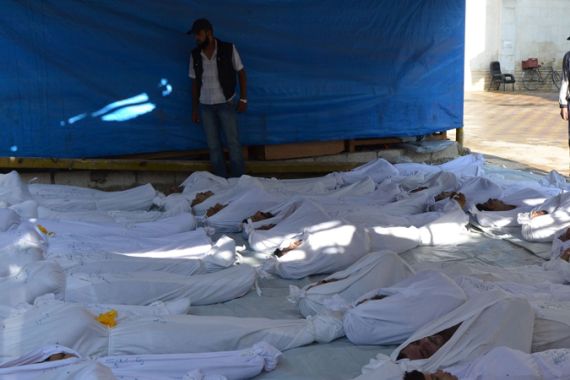UN weapons inspectors back in Syria
Team expected to examine alleged use of chemical weapons some 14 times in Syria’s 30-month conflict.

UN chemical weapons inspectors have returned to Syria to continue investigating allegations of chemical weapons use in the country’s two-and-a-half-year conflict.
The team, led by chief expert Ake Sellstrom, flew into the Lebanese capital Beirut on Wednesday morning, before continuing by road to Damascus. A convoy of five UN cars carrying at least eight members of the team arrived at a central Damascus hotel shortly before midday on Wednesday, witnesses said.
The group is expected to examine the alleged use of chemical weapons some 14 times in Syria’s 30-month conflict.
It went to Syria last month and concluded in a report presented on September 16 that banned chemical weapons had been used on a wide scale. There was clear evidence that sarin gas was used in an attack in the Eastern Ghouta neighbourhood near Damascus on August 21, the report said.
The attack killed an estimated 300 people, though the US put the toll at a much higher number.
Sellstrom pointed out that the report was only an interim document, and that other allegations needed to be looked into.
“There have been other accusations presented to the UN Secretary General, dating back to March, against both sides” in the conflict, he told AFP earlier this month. There were “13, 14 accusations” that “have to be investigated”.
He said the team hoped to be able to present a final report addressing all of the accusations “possibly by the end of October”.
Syrian authorities denied allegations that government forces were behind the August 21 attack, saying it made no sense for them to wage an attack with chemical weapons when their forces were making advances and while the inspectors were staying just a few miles away in the centre of the capital.
Russia has also said the inspectors’ report did not provide irrefutable proof that government forces were responsible, and that Damascus had provided information it said showed rebels were behind the attack.